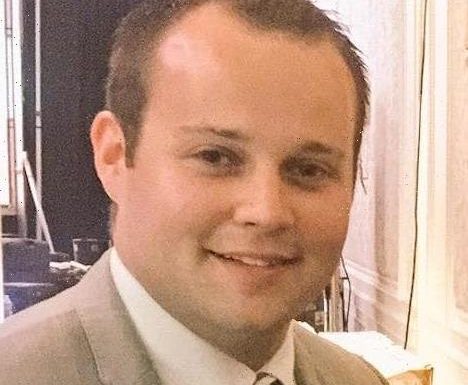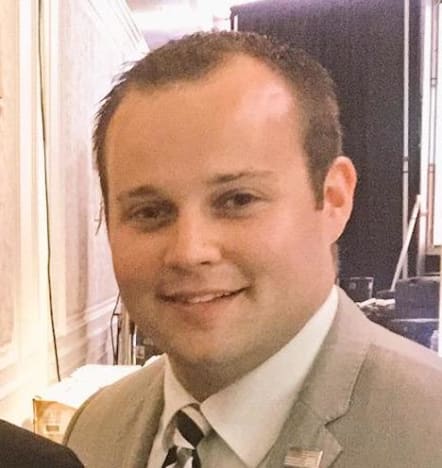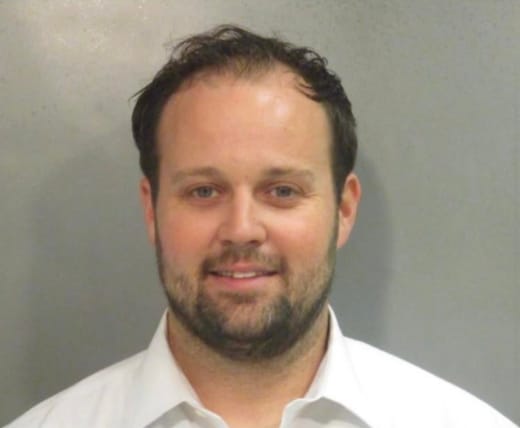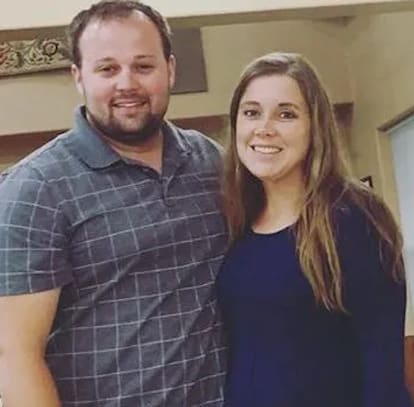
The day of legal reckoning will soon be here for Josh Duggar.
The infamous ex-reality star was convicted on a pair of child sex abuse charges back on December 9, as he was immediately handcuffed after the verdict was read and hauled off to a detention center in Arkansas.
He’s been there ever since.
At the time, a judge declared that he would sentence Duggar to federal prison at some point this spring, prompting many observers to wonder when, exactly, we’ll learn this vital piece of information.
Well. Now we know.
In news broken by The Sun, we can confirm that Josh Duggar will be sentenced at 9:30 a.m. on April 5, 2022.
Based on official guidelines, the father of seven could face up to 20 years behind bars for each of the counts on which he was convicted.
This means that Duggar may learn on April 5 that he will go to prison for four decades.
Of coure, if Josh’s legal team has its way, its client will soon be released from custody altogether.
Last month, Duggar’s lawyers filed an appeal, asking a judge to either overturn Duggar’s guilty verdict — or to grant him a new trial.
Via this request, the defense attorneys are claiming that the Government “failed to adduce any evidence that Duggar ‘knew that the visual depictions were of a minor engaging in sexually explicit conduct” — a necessary element for conviction of each count.
Translation?
These lawyers are trying to argue that even if Josh did download graphic photos/videos of children under the age of 12, he wasn’t aware of what these photos/videos actually contained.
“The jury had no evidence that Duggar personally viewed any specific portion of any of the files allegedly found on the computer,” continues the appeal.
Josh is also trying to pin the his very dirty deeds on a former co-worker.
He believes he’s entitled to a new trial because the first jury didn’t get to hear all the supposed proof his side can offer that someone who used to work at the same used car dealership as Duggar is actually the sex offender.
Will this appeal be granted?
It’s extremely unlikely.
“The government did not need to provide evidence that [Duggar] personally viewed the material to convict him of receiving and possessing child pornography, it only had to prove that he knew the material was of minors engaging in sexually explicit conduct,” responded prosecutors this week to Josh’s latest filing, adding in its reply:
There can be no doubt—let alone a reasonable one—that the defendant knew the visual depictions he received and possessed were of minors engaging in sexually explicit conduct.
The highly-publicized jury trial lasted two weeks late last year before a group of Duggar’s peers submitted a unanimous guilty verdict on two counts of child pornography possession.
At the trial, prosecutors presented damning evidence from Josh’s workplace computer.
It was revealed at the time that one file name found on his HP desktop was of a video of a three-month-old being sexually abused.
There was also a folder comprised of 65 thumbnail files of an underage girl, along with so-called rape porn that members of the jury were shown inside the courtroom.
After the verdict was confirmed, Josh was immediately handcuffed and taken into custody at Washington County Jail… where he was placed in solitary confinement for his safety until sentencing.
After April 5, he will likely be placed in with the general population.
For those interested in the details behind the text-only order signed by Judge Timothy L. Brooks on Tuesday, as it relates to Duggar’s sentencing, scroll down to read the full docket text, which includes three provisions…
1. Any party wishing to file a Sentencing Memorandum must have that “filed of record no later than 14 days prior to sentencing,” according to the court.
A response brief would be due seven days after that.
If the sentencing is continued and any party wishes to submit a Supplemental Sentencing Memorandum, that would be due no later than 14 days before the new sentencing date, and responses to that would be due seven days later.
2. Government and/or defense motions seeking a “traditional guideline departure” must be in writing and filed no later than four business days before sentencing.
3. “Counsel must confer and advise the court via email as to any substantive PSR objections which remain outstanding and require court resolution” no later than three days before sentencing.
For any objections, counsel are also required to email the court if an evidentiary hearing will be required, as well as inform the court of the number of witnesses to be called and the approximate length of time that would be necessary for the evidence portion of a hearing.
Source: Read Full Article








